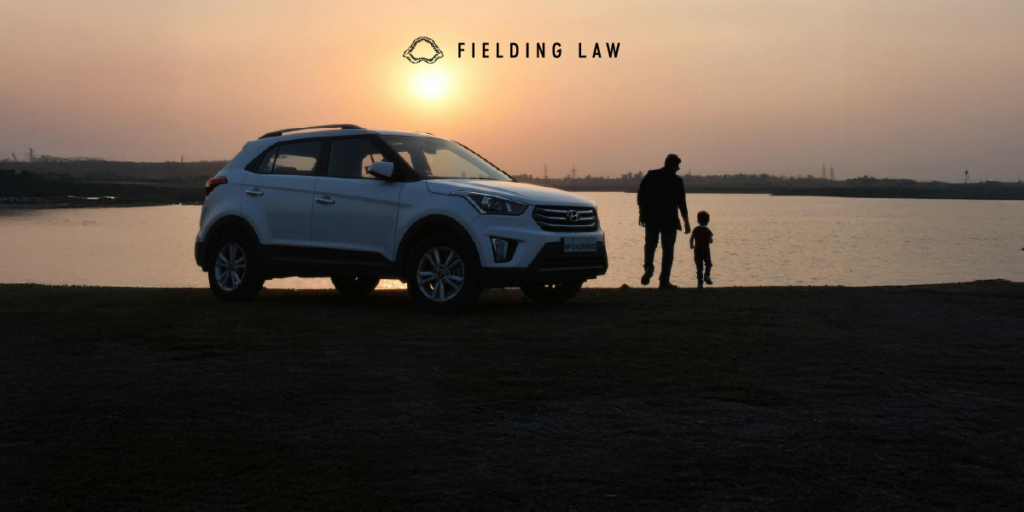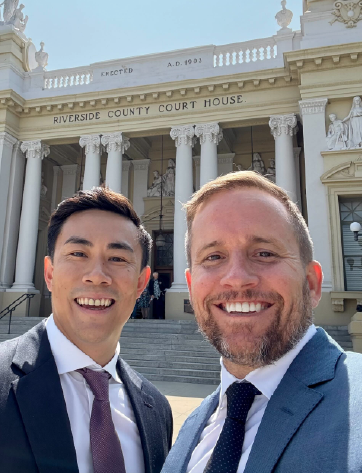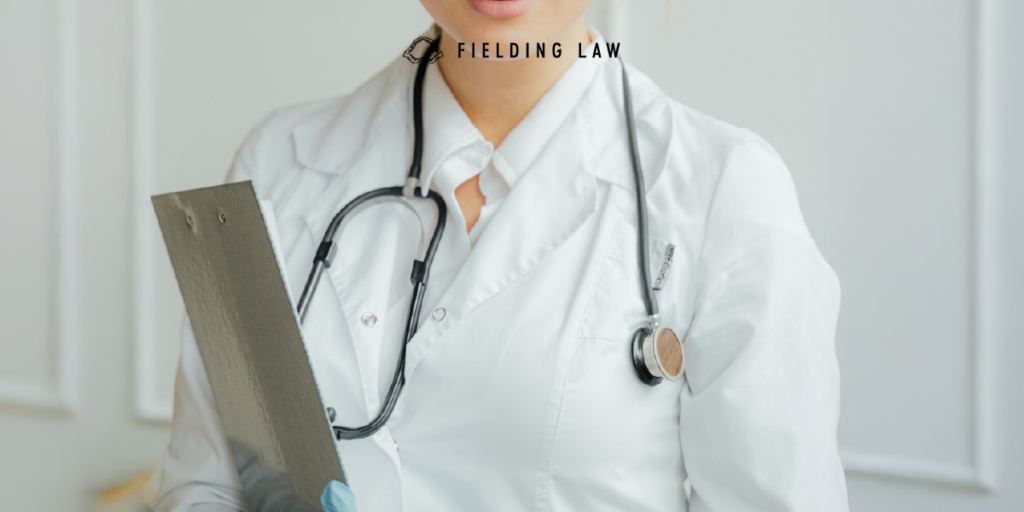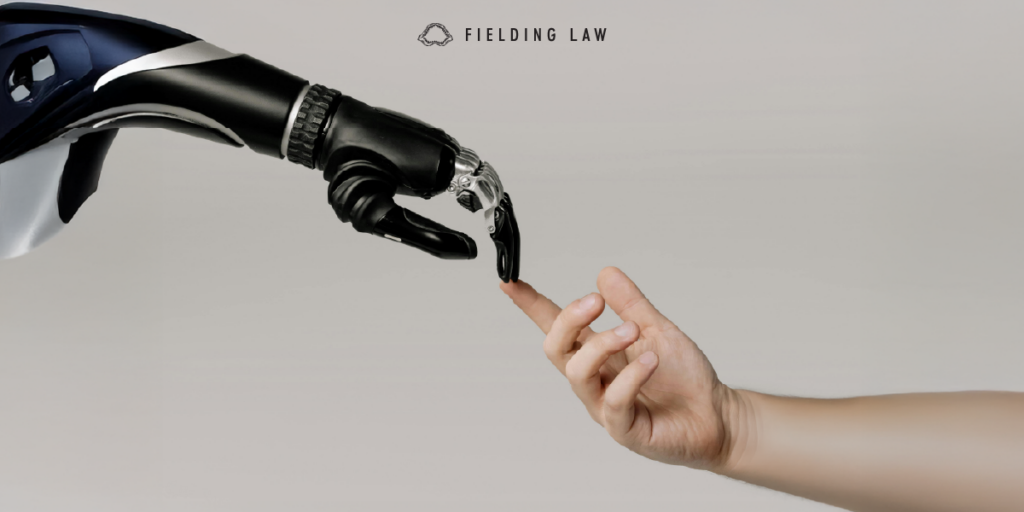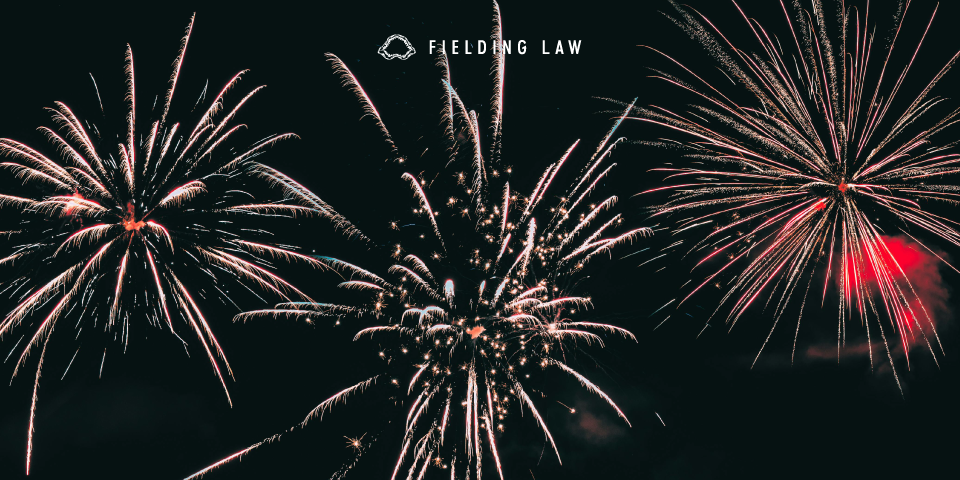
Arizona’s stunning landscapes make it a prime destination for 4th of July celebrations. From backyard barbecues to boating on Lake Havasu and hiking in Sedona, Arizonans love to get outdoors. However, the state’s extreme heat and fire-prone conditions pose serious risks during the holiday. Here is how to enjoy your Independence Day safely in Arizona.
Extreme Heat Precautions
Arizona temperatures often exceed 110°F during July.
-
Stay hydrated with water and electrolyte drinks.
-
Avoid peak heat hours (usually between 10 a.m. and 4 p.m.).
-
Wear light, breathable clothing and apply SPF regularly.
-
Know the signs of heatstroke: confusion, dry skin, dizziness, and fainting.
Wildfire Risk and Firework Laws
Fireworks can spark dangerous wildfires in Arizona’s dry climate.
-
Only use fireworks legally and in permitted areas.
-
Consider attending public firework shows instead of lighting your own.
-
Always have water or a fire extinguisher ready.
-
Check local fire restrictions before lighting anything.
Boating and Water Safety
Arizona’s lakes are packed during the 4th. Be safe while boating:
-
Wear life jackets — it is the law for children under 12.
-
Never operate a boat under the influence of alcohol.
-
Watch for other watercraft and swimmers.
-
Supervise kids at all times near the water.
Avoid Slip and Fall Hazards
From wet pool decks to uneven desert terrain, slips can lead to serious injuries.
-
Use caution around pools and patios.
-
Wear appropriate footwear when hiking or walking near water.
-
Property owners should ensure walkways are well-lit and maintained.
Why Hire Fielding Law
When accidents happen due to someone else’s negligence — whether from unsafe property conditions, reckless boating, or unlawful fireworks — Fielding Law is here to help. Our team understands the unique risks Arizona residents face during the holiday and offers compassionate, experienced representation.
Call for a free consultation at 833.88.SHARK to speak with our team today.
Note: Information provided is for educational purposes and does not constitute legal advice. Always consult with a qualified attorney for legal concerns.

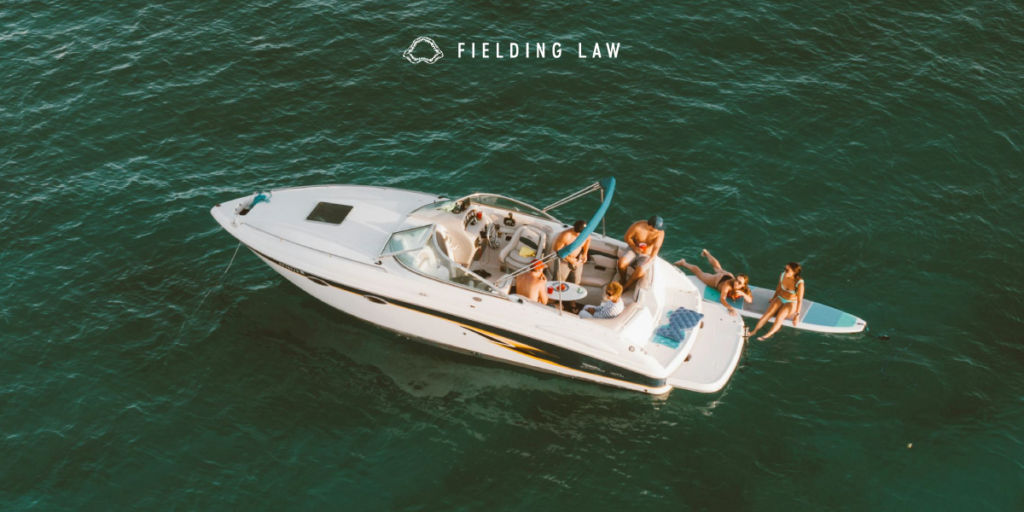
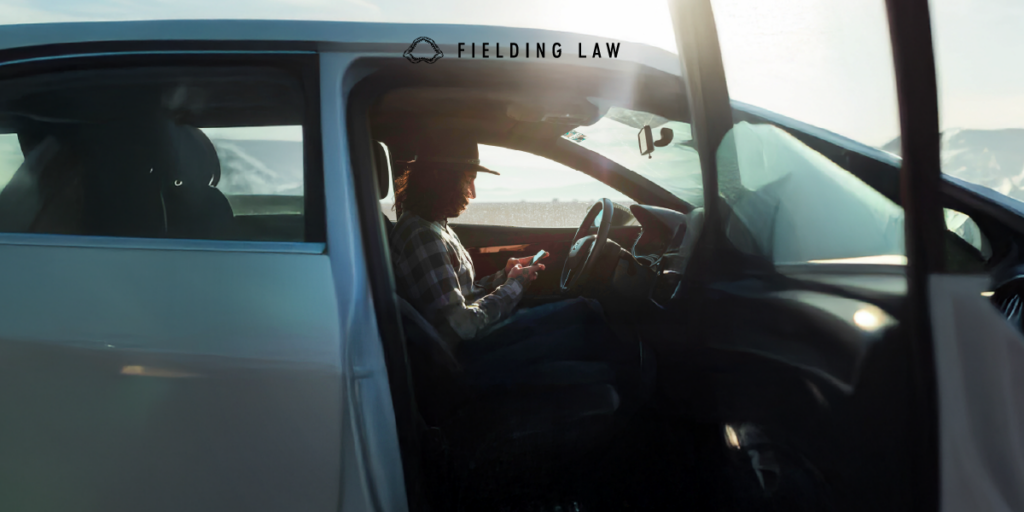
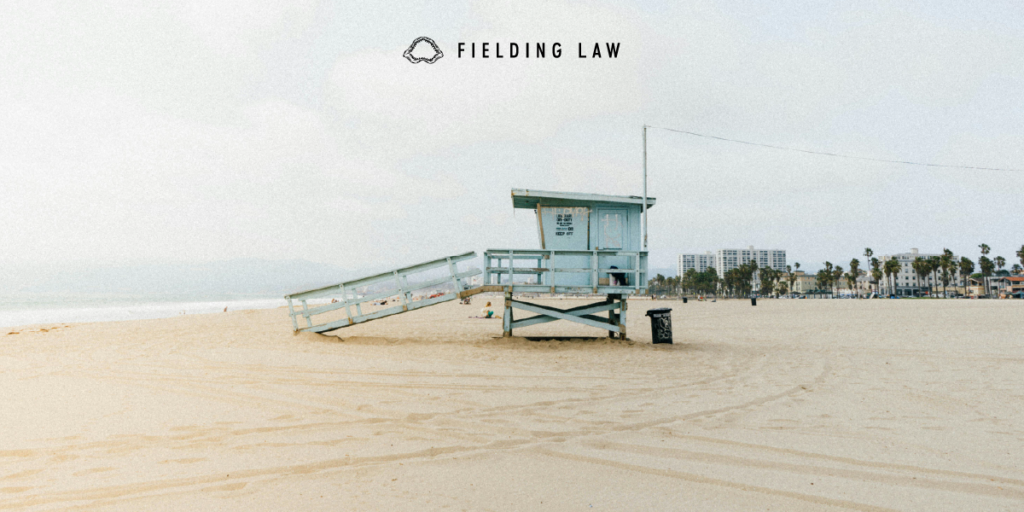

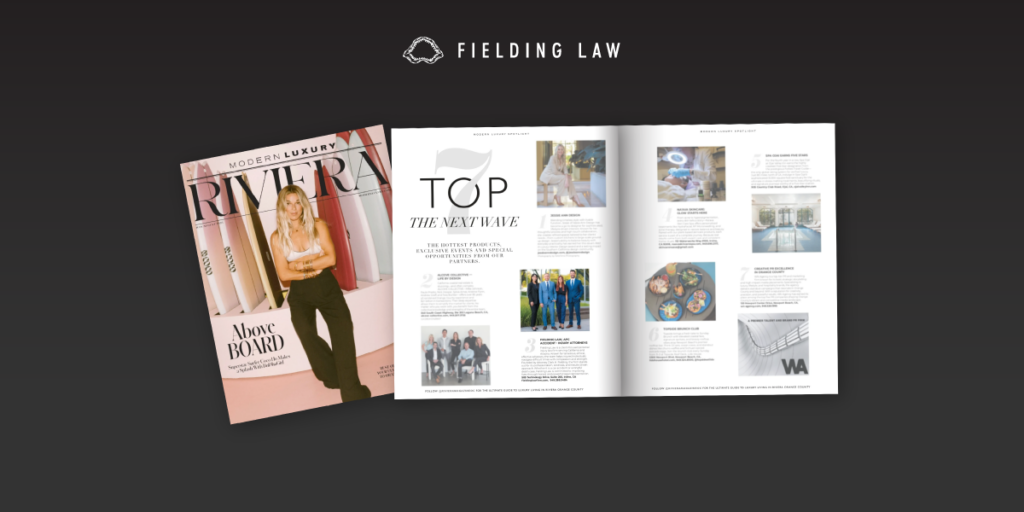
 Coming off the heels of
Coming off the heels of  Being named a Top 7 in Orange County and Best Personal Injury Law Firm is a true honor. It reflects the trust clients place in Fielding Law and the integrity with which the team operates.
Being named a Top 7 in Orange County and Best Personal Injury Law Firm is a true honor. It reflects the trust clients place in Fielding Law and the integrity with which the team operates.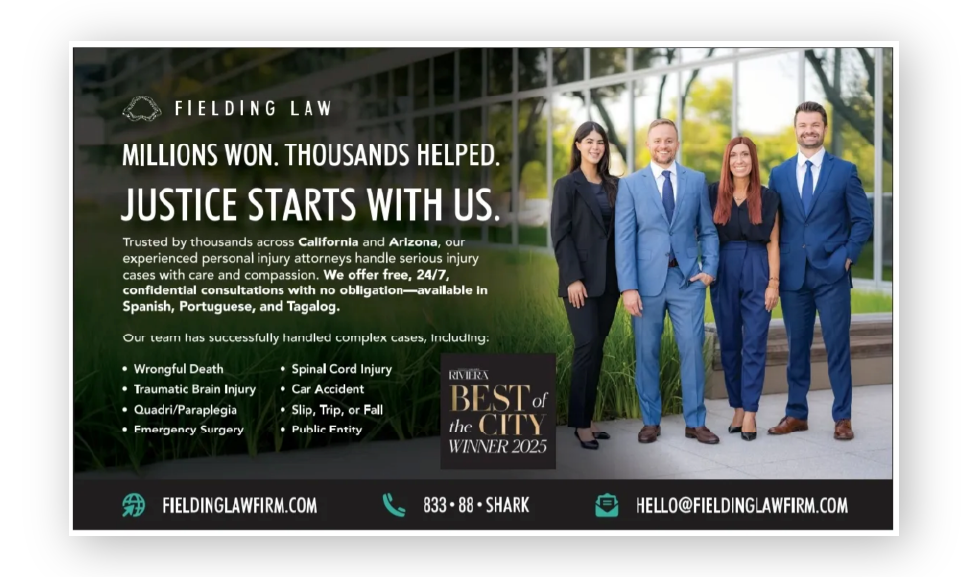 Why Hire Fielding Law
Why Hire Fielding Law